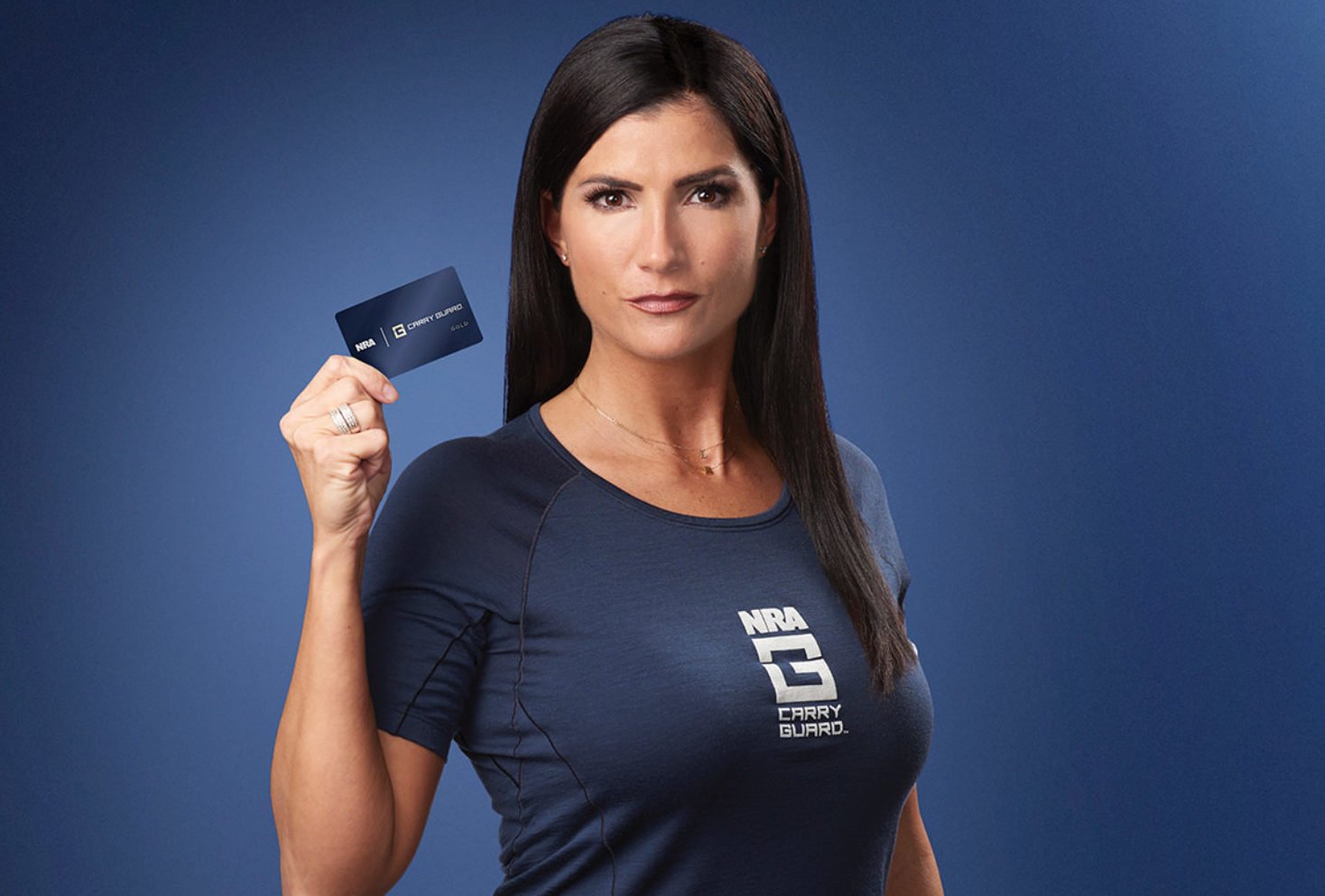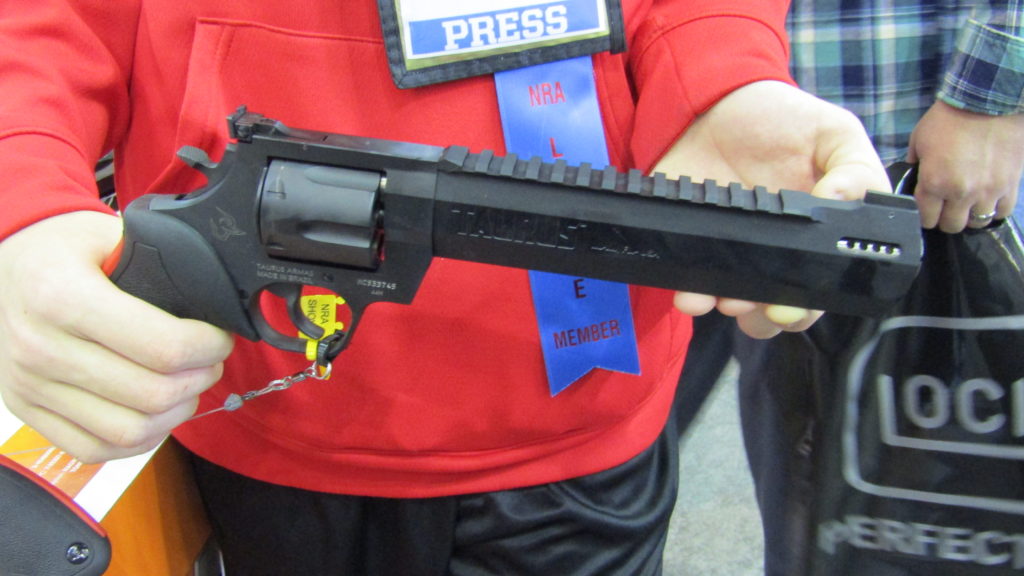
FORMER NRA SPOKESPERSON DANA LOESCH APPEARS IN PROMOTIONAL MATERIAL FOR CARRY GUARD. [NRA]
New York State Charges NRA For Deceptive Insurance Practices
The controversial Carry Guard self-defense insurance is one of several products that state regulators say were marketed in a misleading manner. The gun group could be fined up to $42 million.
The National Rifle Association illegally sold insurance products, including its controversial Carry Guard policies, in New York State and deceptively marketed those products to its members, according to civil charges that state financial regulators made public on February 5.
The Department of Financial Services charges mark another blow to the NRA, which is fighting costly court battles on multiple fronts and fending off investigations by attorneys general in Washington, D.C., and New York that could jeopardize its tax-exempt status.
There is a backstory to the agency’s action: In May 2018, the NRA sued New York Governor Andrew Cuomo and the DFS in federal court, alleging a campaign of “selective prosecution, backroom exhortations, and public threats” that was meant to silence the NRA and coerce banks and insurance providers into shunning the gun rights group. The lawsuit is ongoing.
“These charges were investigated over the course of two DFS administrations by experienced former federal prosecutors and will be adjudicated on the merits through an impartial and balanced process,” a DFS spokeswoman said in an emailed statement.
The NRA did not respond to requests for comment.
Related Story
Secrecy, Self-Dealing, and Greed at the NRA
The organization’s leadership is focused on external threats, but the real crisis is of its own making.
In its charges, the DFS alleges that the NRA violated laws against deceptive marketing by pitching its insurance products as having been designed to ensure that members got the best deal possible, when in fact 14 to 22 percent of the premiums they paid on a given policy went to the NRA.
The DFS highlighted defects in Carry Guard, an insurance program that the NRA rolled out at its annual convention in 2017. Carry Guard was designed to cover losses and costs associated with the use of a firearm, including up to $150,000 in reimbursement for criminal defense and $1 million in civil liability protection. New York bars insurance that covers criminal defense costs, and Carry Guard drew immediate attention from regulators.
Carry Guard was distributed by Lockton, the world’s largest privately held insurance brokerage, and underwritten by the insurance giant Chubb. In May 2018, Lockton agreed to pay the DFS $7 million for insurance law violations stemming from Carry Guard; Chubb agreed to pay $1.3 million. And the main NRA executive behind the Carry Guard roll-out, Josh Powell, recently left the nonprofit.
The charges are not limited to Carry Guard, which the NRA abandoned in the summer of 2019. The agency also alleged that the NRA illegally participated in selling insurance coverage to firearms instructors, gun collectors, and federal firearms dealers, as well as policies pertaining to life, health, and property.
The DFS determined that the NRA was never properly licensed to conduct such business. According to the department, the NRA faces civil penalties up to $42 million.
You may also like
-
Another Democrat Gun Grabber Calls for Political Violence, This Time with ‘Actual Weapons
-
Dark Web of Taxpayer’s Money Funds Anti-Gun Organization
-
Selected Bill Peroutke for their 2025 Life Membership Award.
-
THANK YOU DEAN FOR ALL YOU DO FOR MANITOWOC COUNTY FISH & GAME
-
Those tragically taken far too soon were brave service members and the dedicated outfitters and hunters from Kansas.

